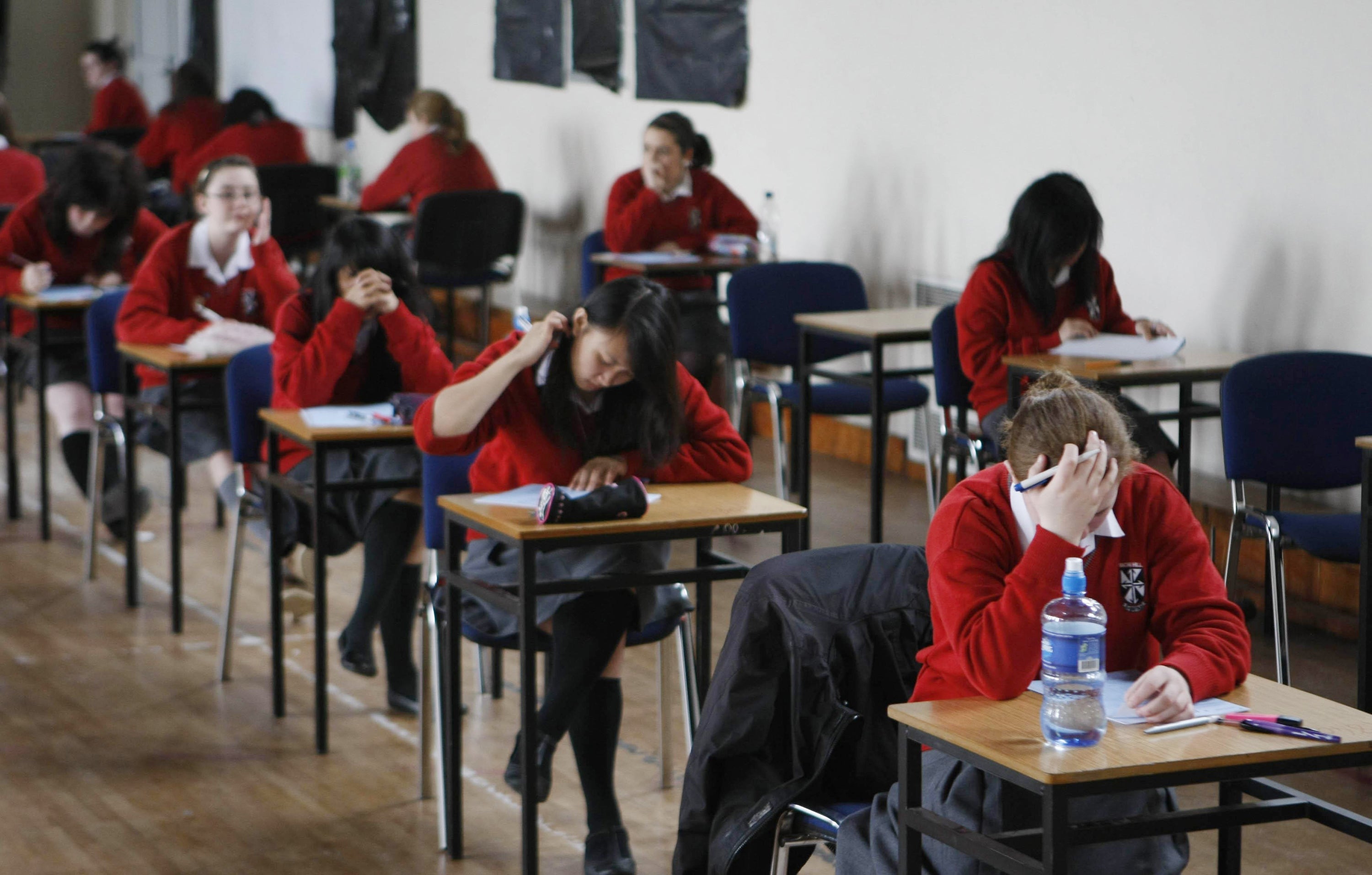A-level results: Will exams ever return in full?
Teacher-assessed grades are seen as a more ‘holistic’ approach to grading. So will they stay forever, asks Matt Mathers?


Charlie Jones-Langan, an A-level student at Archbishop Blanch School in Merseyside, is ecstatic.
The 19-year-old has been awarded an A* and two As and has plans to study medicine at the University of Liverpool.
“Going through the pandemic has made me want to study medicine more because I’ve seen how much they have struggled,” he says of NHS medics and his motivation to enter the field.
“I wish I had been a few years ahead so I could have got involved to help,” he adds.
Not only has Covid had a major impact on the health service and everyday life, but it has also severely disrupted teenagers’ learning – including Jones-Langan’s.
His cohort is the second in a row to have their A-level grades determined by non-traditional means.
Students were this year assessed on a combination of mock tests, coursework and essays, rather than exams, while last year saw a chaotic algorithm system that was widely condemned as unfair.
Gavin Williamson, the education secretary, on Tuesday told BBC Radio 4’s Today programme that the government has no plans for teacher assessments next year, insisting normal service will resume if the virus is under control.
But are exams the best way of determining the future career prospects of our young people, and will they return in full next year?
“There is a good argument for the use of a wider range of assessment methods in the future – including more teacher assessment alongside exams,” Geoff Barton, general secretary of the Association of School and College Leaders, tells The Independent.
“Exams put huge pressure on students, disadvantage learners who struggle with exams but may do better in other forms of assessment, and places a considerable strain on the exam system itself.
“A blended approach using a variety of assessment methods has the potential to be a great deal fairer and less onerous to all concerned.”
But any new approach to assessment would need to be carefully considered,” he adds, “to ensure that it is manageable and reliable, and it could not, therefore, be introduced immediately.”
In a normal A-level assessment year in England, students sit a series of exams to determine what grade they get. The results subsequently determine, in most cases, which university and course a student can get a place on.
Simon Lebus, the interim head of Ofqual, suggests that teacher assessments are a more “accurate” way of awarding grades than formal qualifications.
He says having teachers grade their pupils on work throughout the year would give a more “holistic judgement” than the “snapshot” provided by an exam.
But Ofqual tells The Independent that Lebus means that teacher-assessed grades would be more accurate than exams this year due to the Covid disruption.
Many students would undoubtedly prefer coursework to stress-inducing exams, but any permanent switch to such a model is likely to place unrealistic demands on teachers and schools, those in education believe.
Matthew Simpson, a 26-year-old Cambridge postgraduate who is now teaching English at a state school in the city, says this year’s assessments allowed students to perform better.
“The teacher-assessed grades, however, allowed pupils to perform without all of the additional pressures of an exam environment, which can often hamper a pupil’s performance,” he tells The Independent.
“This, combined with pupils often being able to do more targeted revision, enabled pupils to perform to the best of their abilities. From my own experience, while the grades were not ‘holistic’ as they were still firmly based on their final assessments, they were holistic in the sense that pupils were able to give a better account of themselves.”
Simpson adds that “in terms of consistency across the board, then there is no question that exams are the most accurate” way of determining grades.
In the lead up to Tuesday’s results, there were fears that the lack of exams could result in grade inflation, which appears to have been borne out in the data.
Joint Council for Qualifications data shows that record numbers of students had achieved an A grade or higher.
According to the figures, Jones-Langan is among those students who achieved an A* or A in nearly half of all exams.
Overall, the proportion of entries awarded the top A* grade this year has surged to 19.1 per cent – the highest number since the top grade was first introduced in 2010, figures that coursework critics will point to as evidence that exams are the best way to ensure the integrity of qualifications.






Join our commenting forum
Join thought-provoking conversations, follow other Independent readers and see their replies
Comments